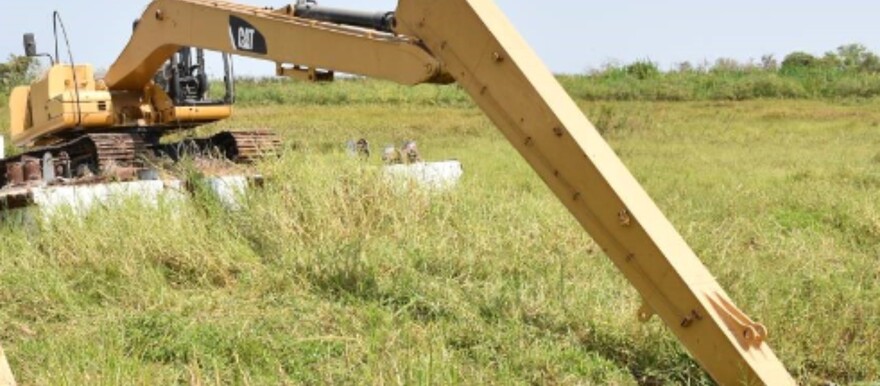The Unity State Legislative Assembly has announced the commencement of the clearing of the Naam River.
According to local authorities, three large excavators mounted on pontoons, are being used to clear the water to mitigate flooding in the state where most areas have been inundated for the last four years.
The commencement of the river clearing exercise faced delays due to public uproar and heated arguments among government officials, civil society activists, and the academia with most against dredging the Naam River.
These stakeholders called for a comprehensive scientific and environmental impact assessment to evaluate the impact on the ecosystem before clearing or dredging the river.
Stephen Mawich, the chairperson of the information committee in the Unity State Legislative Assembly, told Radio Tamazuj Wednesday that clearing of the river had commenced.
“The three large fully equipped excavator machines have successfully started their work and are now inside the Naam River, clearing out all blocked obstacles within the river. These machines will play a pivotal role in the cleaning process of Naam River,” he said. “We believe that clearing the river of reeds and obstructions will help mitigate flooding. It is very important for our communities that have migrated (due to flooding) from different areas across the seven counties in Unity State, to return to their respective areas.”
“We have seen (flood) waters flowing back to the river after the three large excavator machines started clearing Naam River in the last few days,” Mawich added.
He said that within one month, Unity State citizens will be able to transport various commodities from Juba to Bentiu.
Lawmakers and Unity State inhabitants have expressed strong support for the Naam River clearing project, highlighting its potential to assuage flooding in the region.
Nyakuoth Mathot, a resident of Rubkona Town in Unity State, said that clearing the river will prevent further flooding and improve the livelihoods of the local population.
Another concerned resident, speaking on the condition of anonymity, expressed gratitude to the national and state governments for initiating the river-clearing project. He noted that the current situation had adversely affected agriculture and the local population.
“Now our community will go back to their respective homes after the clearing of Naam River,” he said.
For his part, Dr. Riak Koang, a resident of the Bentiu IDP camp, joined the chorus of support for the river clearing project.
“The clearing of Naam River will reduce the water level and provide hope to the community,” he stated. “It has the potential to address the issues faced by communities in the area and enable the government to provide necessary security for the community, allowing people to return to their homes.”
Meanwhile, Zacharia Manyang, the acting secretary general of the civil society union in Unity State, also voiced support for the project, emphasizing that failure to clear the river could result in devastating floods in areas that have not been affected.
“Boats can move from Juba to Bentiu headquarters when the river is cleared and commodity prices will reduce when the clearing exercise has been completed,” he said.




